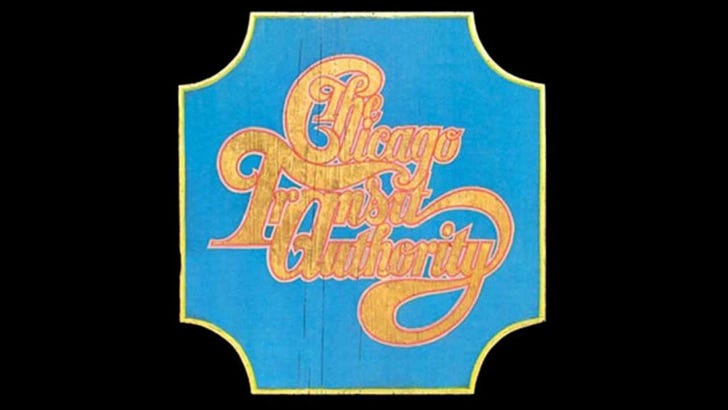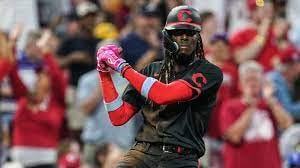When baseball is this good, what's the rush?
Events in Omaha and Cincinnati put the issue of time out of mind.
Paul Skenes and Rhett Lowder may pitch for 15 years and never have a night like Thursday. They turned a College World Series 2-way elimination game into High Noon.
Skenes, of LSU, threw 120 pitches and gave up two hits in eight innings. Lowder, of top-ranked Wake Forest, threw 88 pitches and gave up three hits in seven innings. It ended in the 11th, when LSU’s Tommy White cranked a home run and won it, 2-0.
College baseball has become the home of the most excessive self-celebrations in sports, with guys pounding their hearts over first-inning singles. But even though White’s home run (and 100th RBI of the season) sent LSU into the best-of-three championship round against Florida, the Tigers made sure to console and credit the vanquished. Said coach Jay Johnson: “This is the best game I’ve ever seen.”
It underscored the superpower of the great starting pitcher, and how two of them can turn every pitch into high alert. As Skenes and Lowder built barbed wire around that 60 foot, six inch path, they were so engrossing that one gladly lost track of the clock. There is no report, so far, of anyone being disappointed that LSU-Wake Forest lasted two minutes short of three hours. It was a case of time extraordinarily well-spent.
The next night belonged to another player who took our imaginations to another roof. Elly De La Cruz has been in the major leagues for 15 games. He has 40 total bases and is hitting .361. On Friday night he hit for the cycle, and the Cincinnati Reds beat Atlanta, 11-10, in what manager David Bell called the best regular-season game in which he’s been involved.
The Reds have won 12 consecutive games, their longest streak since 1957, when Bell’s grandfather Gus was a Cincinnati outfielder. The 6-foot-5 De La Cruz was born in January of 2002, nine months before Bell’s San Francisco Giants lost the World Series to Anaheim.
“He’s not of this world,” teammate Joey Votto said.
The other winner Friday night was the resonance of the Reds’ franchise. Despite years of abject hopelessness and a 62-100 record in 2022, the fans have kept in touch. The crowd was 43,086. And, again, few of their fans got in their cars, headed for Dayton or Oxford or Middleton, and grumbled, “Man, can you believe that game lasted three hours and 13 minutes?”
In their groundbreaking album from 53 years ago, Chicago Transit Authority asked the same question:
Yes, these are promising times for the game that America forgot. Twenty-one of the 30 franchises are reporting better attendance, topped by an 11,000-per-game improvement in Philadelphia, which is enjoying a post-World Series bounce.
And, yes, the hurry-up rules have probably had something to do with it. An average game in 2023 is being played in 2:37. If the first pitch in your stadium is thrown at 7:05, that means you’re walking out of there before 10 p.m. It’s a 26-minute improvement over last year, and it’s the quickest time since 1983.
The fact that fans and media types were nodding off wasn’t enough to get it changed. It took pressure from advertisers and sponsors, and it also took a general weariness from team executives and even commissioner Rob Manfred, who doesn’t particularly like the game anyway and probably resented having to devote so much of his life to it. In Mark Leibovich’s celebration of the new rules in The Atlantic, Theo Epstein admitted he' was channel-surfing during recent World Series games. If Epstein, the man who put together the curse-busting Red Sox and Cubs, can’t watch the postseason, nobody else can be expected to.
The pitch clock has been an irritant to veteran players, especially pitchers, and it might be one reason that young teams like the Reds have begun raging against the machine this year. The Mets and Padres were the most conspicuous spenders in the off-season, and they’re below .500, while the reborn Diamondbacks, Reds and Marlins all would make the National League playoffs if the season ended today.
Tampa Bay has the best record in baseball, and Baltimore has the third best record in the American League. They rank 28th and 29th in payroll.
Maybe some of the rookies on these insurgent teams are simply more comfortable with the double-time rhythms of the game than the older guys are, because they’ve already experienced the new rules in the minor leagues.
But the quicker games really haven’t affected the way the game is played. Batting average is up only four points, which runs against predictions of constant singles bounding through infields that aren’t shifted. On-base percentage is up seven points but is still four points short of the .323 composite of 2019.
The only significant difference is in stolen bases, which are up to 0.72 per team per game. That’s the highest figure since 1997 and a jump from 0.51 last year. That, however, is an artificial consequence, thanks to limits on pickoff throws, and bigger actual bases.
The difference is not nearly as jarring as discovering that your favorite podcast is now on 1 1/2 speed. Which is positive. But the memorable games have nothing to do with the passage of real time. And whether people have rejected baseball because of the time-of-game problem is also debatable. It has more to do, one suspects, with the lack of action within the nine innings. World Series Game 5 last year, a 3-2 Houston win over Philadelphia, was one of the best of the decade. It lasted 3:57 and could have gone forever, for all anyone cared.
Yet you can’t fault the powers that be for doing something. The apathy is real. I was in a busy Mexican restaurant in Boulder, Co. during Game 1 of that Series, with a dozen TVs in a line above the bar. None of them were showing baseball. Ask your dad, or grand-dad, about the Series of their childhoods, when teachers would postpone discussions of Silas Marner and bring in portable black-and-white TVs on Series days. If you were in one of those classrooms in the two westernmost time zones, that’s how you probably saw Bill Mazeroski’s home run.
Contrarians exist to keep our opinions under the speed limit, and they should be prized. Jonathan V. Last, in his “Triad” column for The Bulwark website, furiously condemned the changes.
If the “Manfred Man,” or extra-inning ghost-runner, is such a good idea for the 10th inning, why not use it during tie games in the seventh? If you like shorter baseball games just because they’re shorter, do you also like shorter Taylor Swift concerts?
“I am here to tell you that there is precisely no one in America who didn’t like watching baseball at three-hour run times who is going to become a baseball fan now that games are 2 hours and 40 minutes,” Last writes. “This change isn’t going to make baseball more popular. What it will do is create a bunch of shitty outcomes where games are decided by pitch clock violations.”
So far, the outcomes haven’t been that bad, and the best one is this: Bad games aren’t lasting as long. But when there are good games, no one cares. Maybe the Guys In Charge should be seeking more ways to create good games. Or maybe they should let Elly De La Cruz and Paul Skenes and Rhett Lowder, and whomever they’re bringing with them, take care of that.





It's not about overall time as much as idle time. Something happening every 15 seconds instead of every 30. Analytics ruined swings. Maybe over time we will see less reliance on launch angle and get back to real hitting.
Why is this the best columnist of our age?
Because I started out about to skip it because I don’t care about the College World Series and read the whole enjoyable ride.
1) It certainly tells me a lot about Manfred. I suspected the same.
2) I hate some of the changes but am happy the games are shorter. I remember watching Steve Carlton and Bob Gibson duel for nine innings in 1:50-ish.
3) Can we please avoid nights like Wednesday when we sat through 2.5 hours of rain delay and never saw a pitch. It rained the same at 4. 5, 6, 7, 8 and 9pm. And don’t give me we only see them here once. It was the Braves.
Still, this is a great column. And I love baseball.